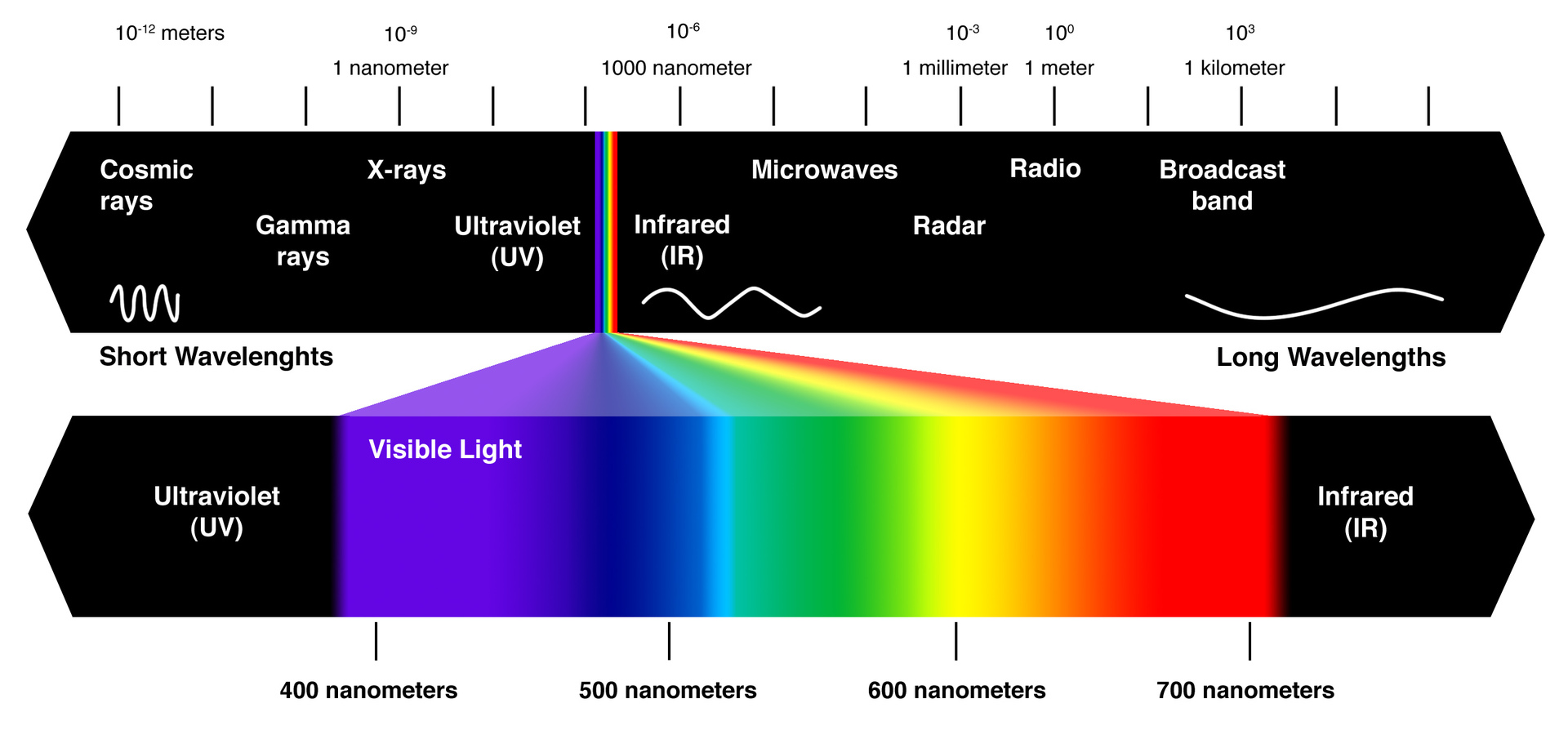Reflections on the impact of RAM technology, which allows you to “forget” forever about memory loss in the brain

If you have not read the previous article about the project to restore the active memory of the brain RAM, I advise you to start with it - geektimes.ru/post/266090 unnecessarily here, there are thoughts about its possible impact on our lives.
The RAM project is aimed at restoring the integrity of the brain's neural network, for the return of memory lost during injuries.
People still do not really understand what memory is, because this is still a poorly studied process. But we know that memory is not just a piece of video of a moment taken by your eyes, it is a complex system made up of many different data received from all the sensors that a person has that form his perceptions and memory
When you interact with any object of the surrounding world, a complex process of interpretation by the brain of all available data received in the body occurs. It will take years to fully describe this process, but in a nutshell, the following happens:
- When you see an object, you record information about the wavelength of the light spectrum of this object, as well as information about the shape, texture, distance to it, and so on in the brain neurons. True, the information about the object is far from complete, because our eyes only see this small part of the electro-magnetic range

entering the matrix of our eyes(Our eyes do not have the ability to collect data on other ranges, so we can not see either in x-ray or infrared, which, incidentally, would give us the opportunity to see the temperature of objects. Some animals have this opportunity, so some of they see the world in a completely different way than we do.)
- Listening to the interaction of the medium with the object, you collect information about the lengths and frequencies of the waves entering the ears, which are then processed and interpreted by the brain as an understandable and familiar sound. (In this, many animals are also ahead of us, because our sound system is worse than most animals)
- You also, without hesitation, collect data about the temperature at a given time, about the brightness of the object, about the volume, about the smell, about the ambient pressure, etc. And all these streams of information are processed, written into memory, and interpreted by the brain as information that it understands, which in turn adds up the memory of this moment.
The brain can interpret all the data received, from all our sensors, and process it according to certain rules, for example, light entering the matrix of the eye passes through a phase of chemical changes to recognize the encoding of the input data stream so that the brain can easily interpret electrical signals . (by a similar principle, our computers interpret stream 1 and 0 in a way that we understand).
You can’t just give the computer a piece of data in any language, because it cannot be interpreted into a binary code that it understands, just like with the brain, it needs data obtained from a sequence of electrical pulses that were created by a complex system of chemical processes before how this data got into the brain
Possible impact of RAM technology on our learning
If you think it over well, everyone will agree that the more data our brain receives, the smarter we become. But we all know that, after reading the English textbook, in a month you will not remember most of the rules and translations of words.
I think this RAM technology, with further improvement, will allow us to move into a new era of learning.
Can you imagine the day when, after reading a textbook in English, even after months you will be able to remember absolutely all the rules of English that you will not need to “learn and forget” every 11 years of school every time.
Can you imagine the day when, after reading in a few days the entire university physics course, from which you will not forget a single principle or just the operation of devices, but also physical laws, which would give you an understanding of all physical principles and an understanding of how they can interact with each other? Yes, you could assemble the Hubble telescope on your knee with this data
Or the day when you could, without forgetting a single moment, study several courses in biology, chemistry, astronomy, physics, and have an extremely deep understanding of how complex devices work just because you will remember how all the components and principles of interaction from Each area interacts with other principles and components. Remembering this amount of data, you could not only collect the Hubble, but also understand what properties need to be fixed in order to improve it, or, for example, understand how solar panels work, and make 100% an effective component that consists of various materials, absorbing everything electro-magnetic spectra to achieve 100% efficiency
Or, you could imagine that day when you can remember absolutely everything studied by mankind, processes in all scientific fields and have a concept of how to improve and optimize what you knew before that only in general terms, for example - the creation of that solar panel with an efficiency of about 100% will become a trivial task for such a person, since it will be obvious to him that certain chemical processes in a certain order will in a certain way interact with the physical properties of other materials.
Knowing all the sociological and psychological subtleties of human thinking and behavior that has been studied once, you will have a huge advantage, since in any situation you can achieve an optimal development of events for yourself. After all, you will remember absolutely everything that you have ever read and studied.
If such a chip is really created in the next 5 years, according to DARPA, and if it becomes an affordable way to combat memory loss, it will really change absolutely everything if scientists decide to continue to improve this program. Why will everything change? Well, imagine how a 7-year-old child, having read 100 books, can remember the whole syntax of all the main programming languages, remember the entire course of the school curriculum, only by reading 20 books. He could create biological experiments at the academic level or make quantum computing systems, remembering how all the studied physical laws work. And all this at the age of 7. Can you imagine how much smarter than you "current" he would be at 8 years old? and at 9? Yes, we now need to learn a foreign language at school for 11 years, and then after that you won’t be able to speak us,
Imagine how fast we could develop, having a similar opportunity.

Many can now say - “But the evolutionary aspects of the brain affect the perception of memory, and it protects itself from excessive information flow, it has been proven.” This is true, but it is possible this process protects the brain from excess information due to the fact that exceeding the number , we would not do without the loss of basic information about the basic processes of the body.
But having integrated the chip into the brain, we can expand its “size” of memory. Improving this technology is a matter of time. I can already see how billions will be made by selling upgrades for the brain.
When is the moment of transition from a biological basis to a synthetic one?
Imagine a robot that has a large knowledge base about everything that surrounds us, if it has a visual information base on wavelengths, which, like us, will allow it to recognize objects, colors and their significance.
This will allow him to give meaning and properties to some objects relative to others, just as we do.
Such projects are already full. In recent months there has been a lot of news about artificial intelligence systems that recognize faces, moods, hidden meanings, colors, shapes, objects, structures. And it should be noted that in some of them the AI coped better than people, namely in the search for hidden emotions in images.
Is it possible at this moment to say that a synthetic tin can already become a man, since he already knows what we can recognize with the help of our eyes? I think not yet.
Imagine adding a self-learning neural network system to this robot to recognize the meaning of sentences in the language. This technology is used by Google, and it works, I must say, impressive. Perhaps in the next 5 years this system will be able to recognize and the meaning of sentences is better than people do.
But, can it already be said at this moment that the synthetic tin has already become a man, since he already knows what we can recognize? Mm ... I think so far, although there are already fewer and fewer differences between a person and a robot. So at what point, adding more and more recognition systems similar to ours, will the robot become a human?
A man is his formed database in the brain about the properties of objects, about their capabilities, about their differences, etc. All emotions and memory are formed precisely in the brain, and this memory is formed due to the information received. The brain can interpret various data and assign them identifiers of values, properties and their differences from other objects, which allows the brain to create a picture of the world.
So how will a robot differ from us, having all recognition systems that will allow it to live, feel, understand, evaluate, compare everything around it at the same level as we, those systems that will eventually form its memory (data about objects and their properties) and which will form him as a person?
Do you think that having, like yours, interpretation functions, the robot will not be able to draw a picture by displaying the images that it has ever seen? It is unlikely that such a robot can precisely draw naked women and a black square, there’s no need for a lot of mind, I drew 4 squares in the corner of the picture - I sold it for 105 000 000 dollars, at least people understand this - the word is art
Or, do you think he will not be able to create a composition on the piano, having the ability to analyze the wavelengths of sounds, their length, frequency, etc.?
Do you think that you are so special and yours, simulated by a complex process of interactions of all incoming data, chemical feelings, cannot be simulated in another framework that does not work on a chemical basis?
If the answer is yes - I would not be so sure in your place. Who knows, there may be a person who is far from evolutionary perfection, a level that does not have the ability to evaluate and understand more than 99% of the processes taking place at a sufficiently deep level, which has only general concepts about the processes of thinking in the carbon form of life, does not have the right to make such statements about "no possibility of something"

Let the robot with all your likes, detection and analysis systems, learn (collect data on the properties of objects) and live (reproduced data accumulated in the defined constant sequence in certain situations)in the same environment in which you studied and lived, and he will behave as a person because all his data, interpreted by a synthetic brain like ours, would have the same data about the light, sounds, feelings coming to the sensors of artificial skin, the only thing that will distinguish it from a person is a synthetic body.
Such a robot will turn from a can into a creature with nothing different from you, the simulation of feelings will be organized on a synthetic basis, this is no different from your system of simulation of feelings, (Yes, your feelings are a simulation, because feelings are a subjectively interpreted form of feedback brain m based on the input parameters)
The only difference is that it works on a chemical basis for people, but does the fact that you use the chemical basis for interpreting feelings make this system more perfect compared to a synthetic one?
If your answer is no - well - you understand that all systems that have ever been considered the best, sooner or later turn out to be not the best and turn out to be less efficient compared to others, although they were considered the best before.
Well, if your answer is yes, and you think that human feelings are so complex and that it will never be possible to simulate, just because they work according to chemical principles that are far from evolutionary perfection ... well, everything is very sad here, you think in illusions and think that one of the billions of principles for organizing the processes of the carbon form of life is better than all the others, just because you work on this chemical principle (There was one guy in history who lived in Germany in the 20th century, he also thought in a similar way )
Conclusion
In the near future, the line between the biological life form and the synthetic one will gradually be erased if we manage to connect the chips to the brain. Perhaps even in the near future after the introduction of such a chip into the brain, it will become possible to directly connect the brain to the Internet, for the instant accumulation of large arrays of knowledge from all areas.
Many will say this can lead to unpleasant consequences. But why should this stop us? Yes, atomic energy can also be used to the detriment, but after getting smarter, people began to use it to generate more environmentally friendly energy, which became one of the factors for increasing economic growth and raising living standards.
People are becoming smarter due to the fact that they have more information, processing which they have new ideas for improving and optimizing life. But it is not very effective to memorize and accumulate data (read 500 unfamiliar foreign words in a row (a language that you don’t know) and translate to them, trying to remember the meaning of the words, then close the translation, write down all the memorized words in memory, if your result zero, congratulations to you - a man by the same person, having above average worthless memory with microscopic fast memory storage buffer)
Perhaps this RAM technology will be able to lead us to the technological singularity, because An increase tion of knowledge will occur more than once in 11 months, as is happening now(according to IBM estimates, after the introduction of the Internet of Things, knowledge will double every 12 hours) and once every few milliseconds, which will lead to instant exponential development in all sectors of life, which in turn will accelerate this process, allowing you to create even more advanced methods learning.
Well, or at least it will allow us to quickly learn, remembering the very 500 words and meanings to them from the first and forever.
Perhaps the distant future shown in the works and films of science fiction writers is not such a distant future, as we think.
